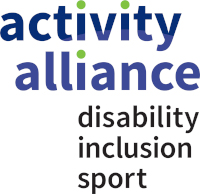Title
Health knowledge, employee well-being programmes and incentives
Research Area
Tackling Inactivity
Author
UnitedHealthcare
Summary of Findings
This research is based on a telephone survey of over 18s in America which covered various health topics including their thoughts on what would motivate them to spend more time on their health, general health, ageing and employee well-being programmes.
68% of people survey agreed that an incentive of $2 a day would motivate them to dedicate time to improving their health. 57% of participants said they would be more likely to be physically active if there was a social element included with 67% of those who already had access to a well-being programme saying it was important that they could include members of their family or partner. When asked to rate how important "engaging in strength or cardiovascular training" was in terms of health priorities, the respondents gave a mean score of 4.3 out of 5 (where 5 represented extremely important).
The researchers recognise that there is some disparity between perceived effects of lifestyle choices and the medical evidence, noting that only 22% of those questioned correctly recognised "that 80 percent or more of incidences of premature chronic conditions, such as heart disease, stroke and diabetes, are generally caused by modifiable lifestyle choices, such as risk factors like smoking or obesity, as opposed to being caused by genetic factors". The same lack of knowledge seems to be true when it comes to aging with 53% of respondents expecting to have no issues with everyday tasks up until their 80s and 11% saying they would never have any issues with daily tasks due to ageing. Researchers compared this to a study which identified 42% of those 80 or older have "functional limitations, such as the inability to walk a flight of stairs". In relation to employee health/well-being programmes, the survey found that 57% of those asked found their employer's programme had made a "positive impact on their health. Of these, 82 percent said they were motivated to "pay more attention to their health" and 63 percent said they increased their physical activity levels. They go on to recognise the benefits in the workplace such as reduced stress, increased productivity and fewer days off due to illness.
Implications
Financial incentives, social aspects and/or inclusion of family in physical activities being offered as part of a physical activity referral scheme could increase uptake. The survey also highlights a lack of knowledge around the impacts of lifestyle choices and ageing on people's general health and activity levels creating an opportunity for education.
.png)













